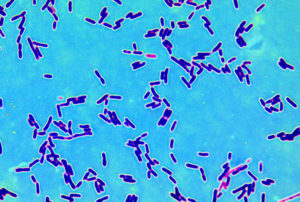 By now no one should be surprised that the male urethra has a microbiome - the community of microbes (bacteria, viruses, fungi) that live there. After all, we have millions of microbes living all over and in us.
By now no one should be surprised that the male urethra has a microbiome - the community of microbes (bacteria, viruses, fungi) that live there. After all, we have millions of microbes living all over and in us.
There is the core microbiome generally found in all adult male urethras and then also microbes that vary from person to person. The urethra is the tube through which both urine and semen leave the male body.
A recent study found that having sex with a woman (vaginal sex) influences what lives in the male urethral microbiome. The researchers found that some of the men had microbes in the male urethra that are normally found in the female reproductive tract, specifically women with vaginal dysbiosis (yeast infections). This means the women transmitted the microbes to the men during sex. These microbes are not part of the male core urethral microbiome.
Interestingly, even if the men have microbes associated with bacterial vaginosis in the microbiome of the urethra, the men (unlike the women) didn't have any symptoms of an infection.
From Futurity: Vaginal infections can be sexually transmitted to men
New research finds that the bacteria that causes a common vaginal infection can also have a major presence in men and can be sexually transmitted.
“We looked at the urethral microbiome of healthy adult men and found that many of them actually had bacteria that is associated with bacterial vaginosis in women,” says David Nelson, professor of microbiology and immunology at the Indiana University School of Medicine and co-corresponding author of the study.
“These bacteria can be transmitted through heterosexual, vaginal sex, something that has never been shown in research before.”
Bacterial vaginosis is a common condition in women, but until now, researchers have not confirmed it can be transmitted via sex. Many scientists previously thought urine is sterile, Nelson says.
But the new study, published in Cell Reports Medicine, proves that is not the case. The team looked at 110 distal urethral swab specimens from men with no urogenital symptoms, no sexually transmitted infections (STIs), and no inflammation of the urethra.
“What we found was stunning,” Nelson says. “These men had two types of colonized bacteria—one that was native to the penile urethra, and one that was from an outside source. This is the first time it has been shown that the human microbiome is primarily shaped by behavior.”
The researchers found only the men who reported having vaginal sex carried the bacteria often associated with bacterial vaginosis. They also discovered the bacteria was detectable for at least two months after having vaginal sex.
